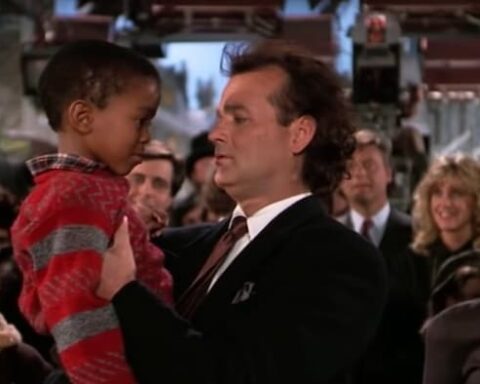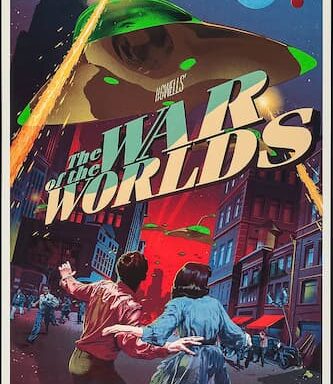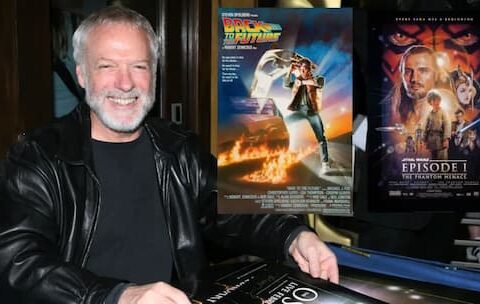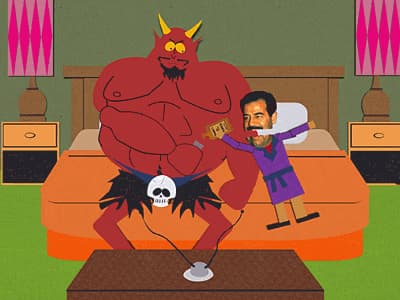On the matter of J.J Abrams’s 2009 Star Trek reboot movie: I really, really liked that film.
There were things about it I didn’t necessarily like that much: but, on the whole, I found it hugely enjoyable and generally endearing. For better or worse, I considered it broadly a Trek film for non-Trek fans. I also had gripes with the ‘alternative timeline’ motif, which seemed like a lazy construct to me, as well as with various other things.
However, after years of generally poor Trek movies with the Next Generation cast. J.J’s 2009 reboot was precisely the new burst of energy and life the franchise needed.
I would argue that Star Trek 2009 was the best Trek film since at least the mid-to-late 1980s.
The follow-up film, now in cinemas, is Star Trek: Into Darkness.
And, again, this is a very well-made and solidly entertaining big-budget movie. However, this one is a lot more flawed (perhaps fatally so) and imbalanced than its 2009 predecessor.
It still has all the great production and direction of the first film, and all the break-neck pacing and excitement. It still has the fun, snappy dialogue, the nice character moments, the enjoyable inter-character dynamics, and the solid acting performances.
All of that good stuff from 2009 is present in Into Darkness.
Chris Pine is great as a young Kirk; Zachary Quinto is enjoyable enough as Spock. And the rest of the cast does their job well. The standout, always, seems to be Karl Urban‘s perfect approximation of a younger Bones or younger DeForest Kelly. He just feels so much like Bones and he seems to really enjoy biting into the iconic role in a way that’s infectious.
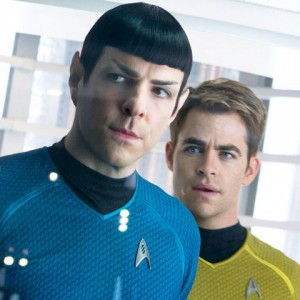
Even the plot of Into Darkness has some quality to it – at least for the first two acts. The third act is a dumpster fire. But, for the first hour and a half, it does build intrigue and tension and is highly enjoyable Trek fare.
There are two major problems that under-cut this film.
The first is that dumpster fire of a third act (complete with fake-out ‘deaths’ that are meant to have emotional weight, but are too stupid to work that way).
And the second is the key matter of Khan Noonien Singh.
Benedict Cumberbatch‘s Khan Noonien Singh is a big question mark. His performance in this film is solid, but it seems a questionable casting choice to have an iconic and well-known character played by an Englishman with a straight English accent, when the original was Hispanic, with a clearly non-English accent (and with a name like ‘Singh’, presumably of Indian origin).
That seems a little incongruous to me, especially for a film that otherwise seems to have taken great measures to appear to connect with Star Trek II: The Wrath of Khan.
By the same token, why make the Carol Marcus character English when in the original movie she was clearly American?
While Cumberbatch‘s Khan is entertaining in itself, the character just seems like someone completely unrelated to Ricardo Montalban’s original character – and that surely isn’t the idea. The same has to be said for Alice Eve’s Carol Marcus. I can’t help but feel there must’ve been someone more suitable to play either of those roles; or at least that both actors in this case should’ve been made to play the parts more in keeping with the originals.
It seems strange to me that the film appears very attentive to continuity in some areas and yet not in others. It makes no sense: in this parallel timeline that was created by the events of the first film, why would the same characters (with the same names) exist – and yet be from a different country, for example? If they don’t have the same history or backstory, then why would they be the same person with the same name?
And if you’re trying to pay homage to Wrath of Khan by bringing in Carol Marcus, why change her nationality or accent? How is that still paying homage?
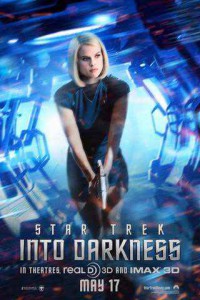
With Khan, I acknowledge that for anyone to come in and try to recreate so iconic a character and performance from the past is very difficult. And maybe J.J decided this version of Khan shouldn’t even try to evoke or emulate Ricardo Montalban, but to do something completely different.
But then…why have it be Khan at all?
Khan wasn’t a great character because he was a genetically engineered superman and megalomaniac. He was a great character because of the amount of personality and charisma that the original actor – and writers – infused him with.
Into Darkness literally takes the element that ISN’T interesting about Khan and centers itself on that: while bypassing everything that made Khan such a compelling and iconic character in the original incarnation.
It might’ve worked better to just make Cumberbatch’s villain someone else entirely. But, clearly, for nostalgia-bait reasons, Abrams and co wanted the second film in this rebooted franchise to evoke (or, in some places, flat-out recreate) the second film from the original franchise.
Thus, we HAD to have Khan. And we had to have that famous “Khaaaaaan!” scream, and we had to have the Kirk/Spock moment separated by the glass, etc. But minus all of the power or poignancy of the original material it is copying.
There’s a fine line between homage and simple reproduction: Into Darkness struggles with that distinction, sometimes to cringeworthy extents. There are one or two moments here that almost feel like parody – when they’re clearly not meant to be.
Which is a shame: because, again, so much of this film is really entertaining and really well made. And there’s nothing wrong with the production, the editing or the performances.
But when Quinto’s Spock yells ‘Khaaaaan!’ in that emulation of the iconic Shatner moment, it is so unintentionally funny that you have to wonder how the people making this film didn’t notice how off-the-mark this was. Worse is the ‘death’ or sacrifice of Kirk – followed by a Kirk/Spock moment that is a direct re-appropriation of the famous and moving scene of Spock’s death from The Wrath of Khan.
It just doesn’t work.
I get what the idea is: that, in this parallel timeline, the same event unfolded, but the roles were reversed – so that Kirk dies instead of Spock, and Spock reacts instead of Kirk. But it’s just so ham-fisted and clumsy: and so obvious.
Even worse for the fact that Kirk’s death doesn’t even mean anything: through magical techno-babble, he’s brought back to life five minutes later anyway!
Again, this film’s third act really is a dumpster fire! And again, it’s a shame, because there’s some really great material in the first two acts.
It takes a genuinely moving, genuinely iconic moment from cinema history: and it almost just makes a parody of it. It lacks all emotional weight and it even feels a little insulting to the original – even though I’m sure Abrams and co did this with genuine love and intended homage. This is why and where the line between homage and mere reproduction (or even parody) is so delicate – and, when misjudged, can go disastrously wrong.
It’s things like this that make me worried about J.J Abrams taking the reigns for the new Star Wars: even though there are lots of positives and strengths in Abrams’ Star Trek films that could bode well for the new Star Wars, there is also this tendency towards badly done homage or recreation.
The Wrath of Khan is one of the greatest movies ever made; and one of the most iconic. So it’s understandable why the filmmakers would want to evoke it or connect to it. But outright copying and pasting scenes or moments from that three-decades-old movie is the least intelligent and least effective way to do that.
And it isn’t that fan-servicey moments or references are a bad thing. It’s all about how they’re done. As a case in point, I loved that Leonard Nimoy was brought back again for a scene as the original Spock. And I really appreciated the Section 31 reference (I’m a big-time DS-Niner, so that floats my boat). There are just clever or subtle ways to do these things: and then there’s “Khaaaaaan!”
It’s also worth noting that the original Wrath of Khan didn’t feature a single face-to-face confrontation between Kirk and Khan: it was all done over viewscreens or com channels and it was mostly psychological. In Into Darkness, however, we frequently have the conflict reduced to characters punching the crap out of each other for extended periods: this is one clear difference in the approach, or the psychology, behind the two films and how they portray their characters and conflicts.
All of that being said, and as problematic as this film is, I can’t quite bring myself to hate it: because it genuinely is entertaining for at least two thirds of its run time.
The action sequences are superb. And there’s a general vibe of good energy and enthusiasm to all the elements of the production and the performances. It’s a fun film – it’s just best not to think about it too much.
And, hey, it’s still better than what we were getting with those four TNG movies. Though a less solid offering than the 2009 Star Trek film. I would argue that the Abrams Trek is the most engaging and promising incarnation of Star Trek since Deep Space Nine ended (1993 – 1999).
J.J Abrams has definitely injected new life into a franchise that had faded considerably from its better days. I just hope they can learn to back away from the overdone or misjudged homages or copy-pastes like the ones that undermine the final act of this movie. Far better for this newly rebooted franchise to find its own identity, tell its own stories and explore its own space.
My feeling is that, if they start trying to tell original stories and cover new ground with this set of actors and characters, this franchise could fare really well.

